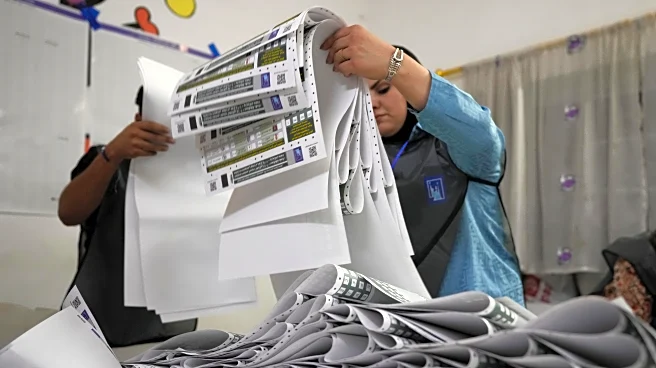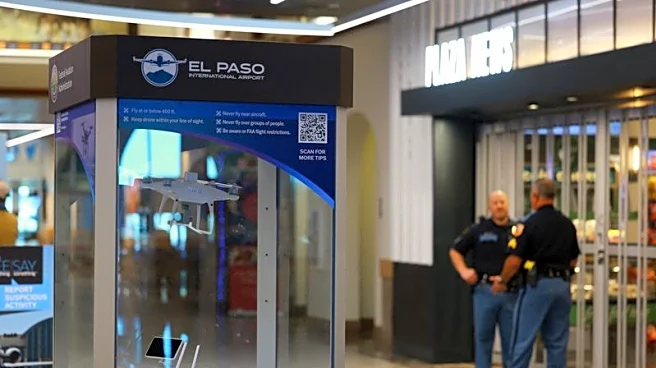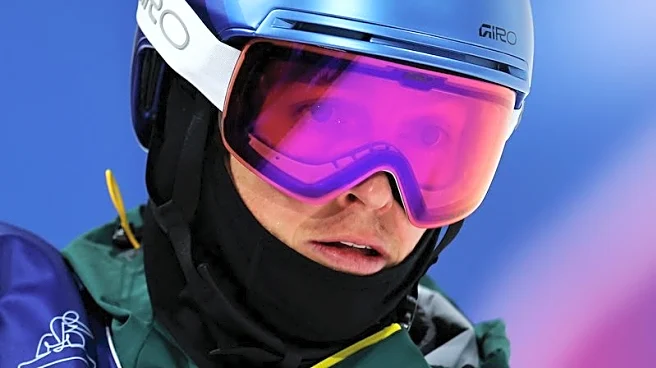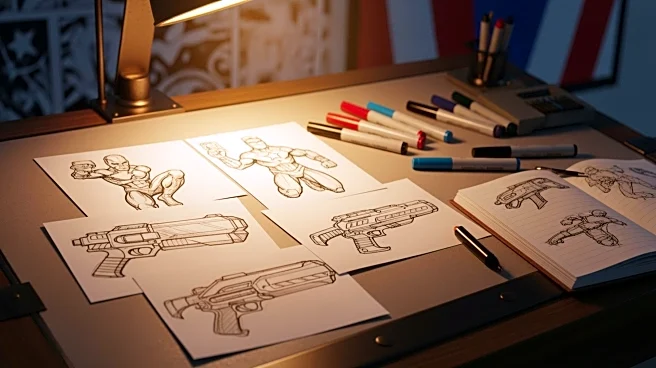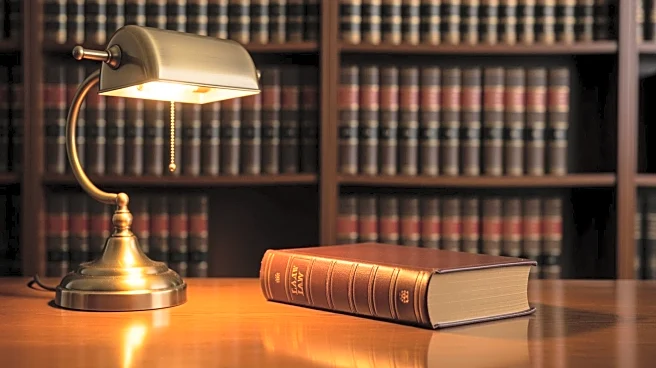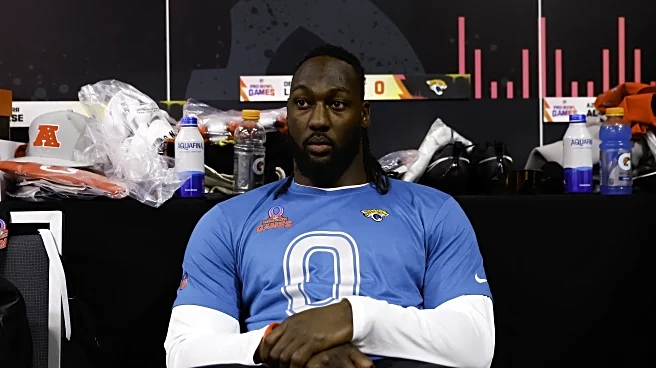BAGHDAD (AP) — Iraqis voted Tuesday in a parliamentary election marked by tight security and a boycott by a major political bloc.
Attendance was sparse at many polling stations visited by Associated Press journalists. Turnout figures were not immediately available but were expected to be low. Initial election results were expected on Wednesday.
Ahead of the voting, violence between party supporters in the northern city of Kirkuk left two police officers
dead. It was the only immediate report of serious violence.
Only 21.4 million of 32 million eligible voters updated their information and obtained voter cards ahead of the election, a decrease from the last parliamentary election in 2021, when about 24 million voters registered.
This election followed major shifts in the region over the past two years, including the wars in Gaza and Lebanon, the brief Israel-Iran war and the fall of Syrian President Bashar Assad last December.
Meanwhile, U.S. pressure intensifies on the Iraqi government to curb the influence of Iran-aligned armed factions, some of which had candidates in Tuesday's vote.
The election asserts “the people’s commitment to this democratic practice,” said Prime Minister Mohammad Shia al-Sudani, running for a second term.
The popular Sadrist Movement, led by influential Shiite cleric Muqtada al-Sadr, boycotted the polls. Al-Sadr’s bloc won the largest number of seats in the 2021 election but withdrew after failed negotiations over forming a government, amid a standoff with rival Shiite parties. He has since boycotted the political system.
At the entrance to Sadr City — a sprawling stronghold of the Sadrist movement on the outskirts of Baghdad — security was noticeably tighter than in other parts of the capital. Iraqi special forces and federal police were deployed, with armored vehicles and Humvees stationed along the main roads.
A large banner showed al-Sadr wearing military fatigues and holding a weapon, with the words, “My people in Sadr City are boycotting.” On a main Sadr City street, all shops were shuttered, and posters of slain Sadr loyalists lined the walls.
Polling station were open there but almost completely empty. At one, which serves 3,300 voters, station director Ahmed al-Mousawi said a few hours into the balloting that fewer than 60 people had voted.
“The Sadrist boycott has had a major impact," he said. "In previous elections, there used to be long lines from the early morning hours.”
One of the few people who ignored the call to boycott, 54-year-old Sabih Dakhel, said he and his wife decided to vote in hopes that new elected officials might improve living conditions.
“Sadr City feels almost like a lockdown because of Muqtada al-Sadr’s call for his followers to stay home,” Dakhel said.
Rafid Ajeel, a resident who heeded the call to boycott, asserted that “for us, this government is a corrupted government, what comes after will be a corrupt government, and the one before was a corrupted government too.”
Violence broke out overnight in Kirkuk ahead of the election.
The city, with a mixed population of Sunnis, Shia, Kurds and Turkmen, has been the scene of a territorial dispute for years between the central government and regional authorities in the semi-autonomous northern Kurdish region. It was the site of violent protests in 2023.
A statement from Iraq’s security forces said a brawl broke out around 2 a.m. Tuesday between two groups, escalating into shooting. Two security personnel were killed and two civilians injured, it said. Fourteen people were arrested.
The statement did not say what caused the fight.
A resident who witnessed the clashes and spoke on condition of anonymity because of security concerns said the fight broke out between supporters of the Patriotic Union of Kurdistan, one of Iraq’s two main Kurdish parties, and the Iraqi Turkmen Front after supporters of the Turkmen party blocked a road in front of their headquarters.
By the time polls opened, calm had been restored and a steady stream of voters lined up, although many expressed apathy about the process.
“We don’t really expect much to change other than the faces of our representatives at the parliament, but voting has become something we do out of habit, much like people who pray simply because it’s part of their routine,” said 60-year-old Nouraddin Salih, who cast his vote for the PUK party.
Ban Bahnam, 40, a member of the Assyrian minority, also said she expects little from the elections.
“Our people are still leaving the country hopelessly,” she said. "Even without hopes or expectations, we still come and vote.”
Ahead of the election, there were widespread allegations of corruption and vote-buying.
Last week, security services arrested 46 people accused of illegally buying and selling voter cards in sting operations in several provinces, and some 1,841 cards in their possession were seized.
The election results could face legal challenges. The head of Iraq’s Supreme Judicial Council wrote in a statement published on the council’s website that the election date set for Tuesday is unconstitutional, noting that the vote was originally scheduled for Nov. 24.
___
Martany reported from Kirkuk, Iraq.
